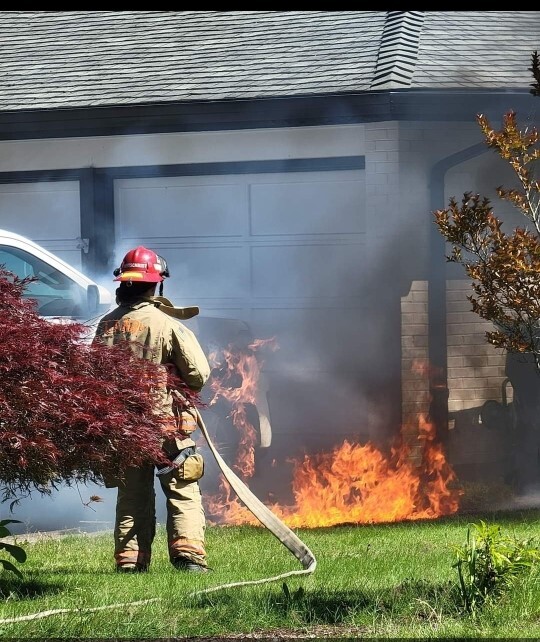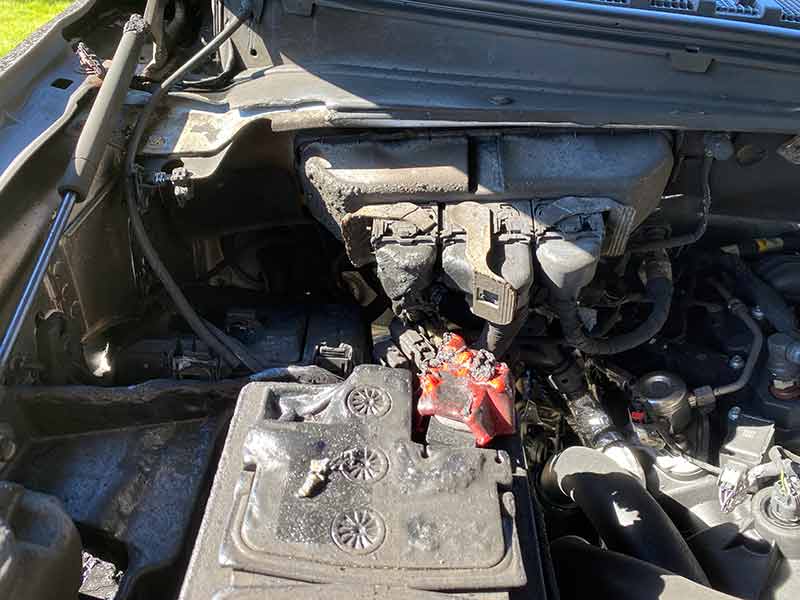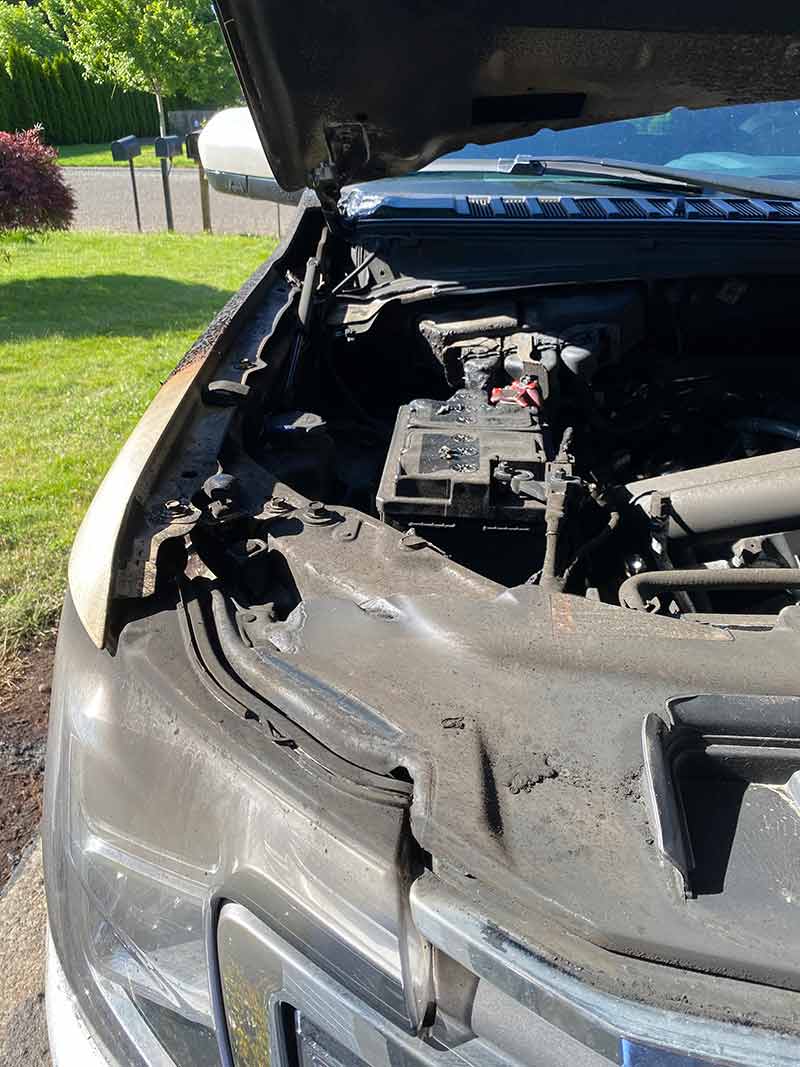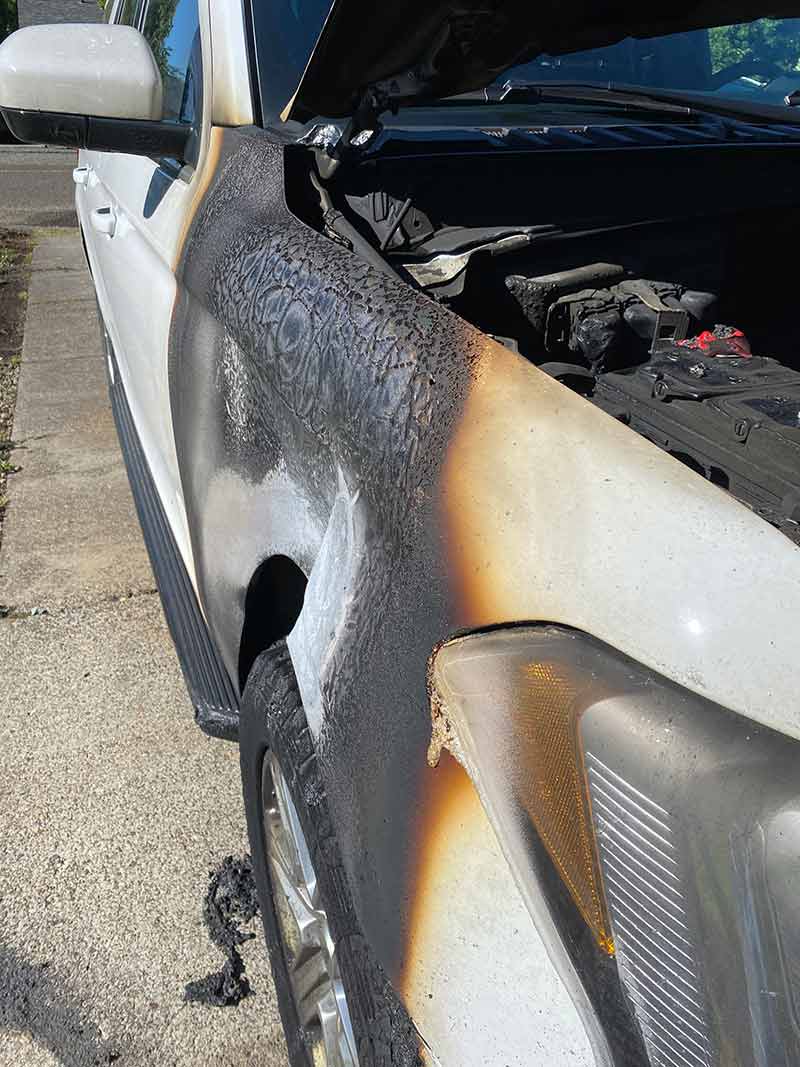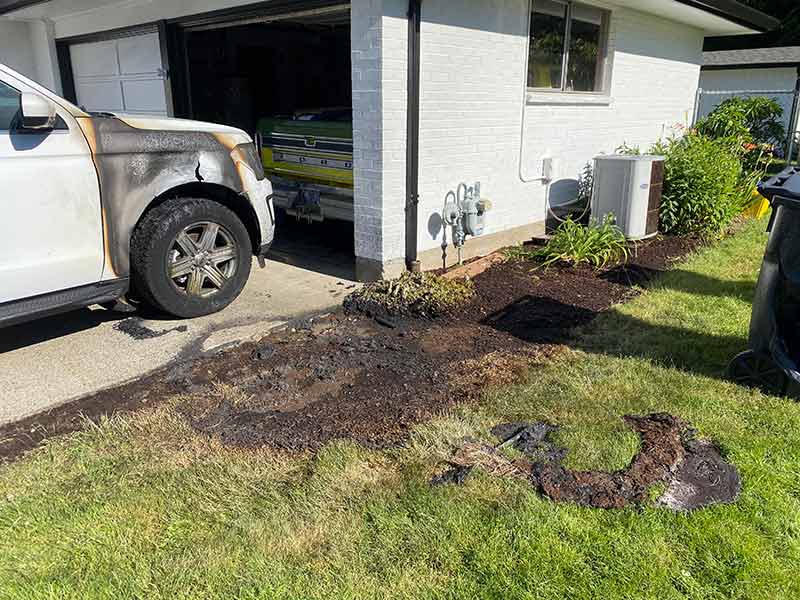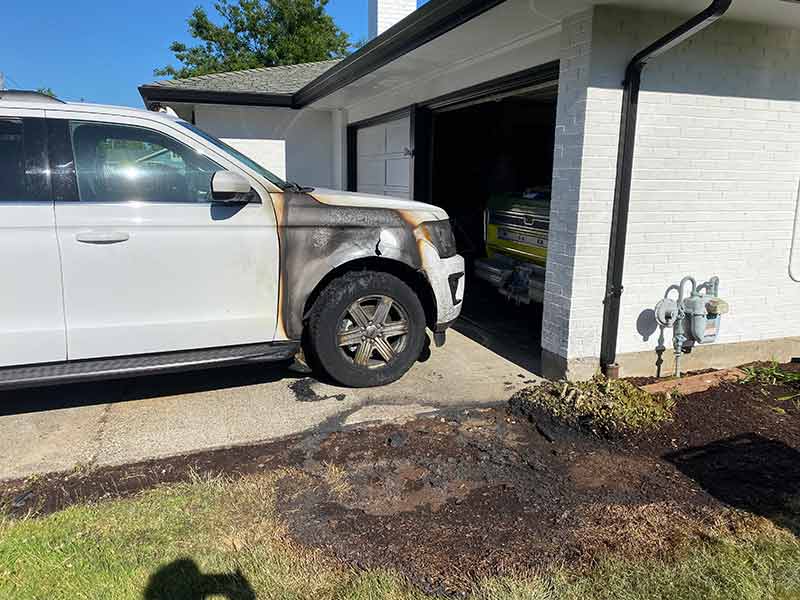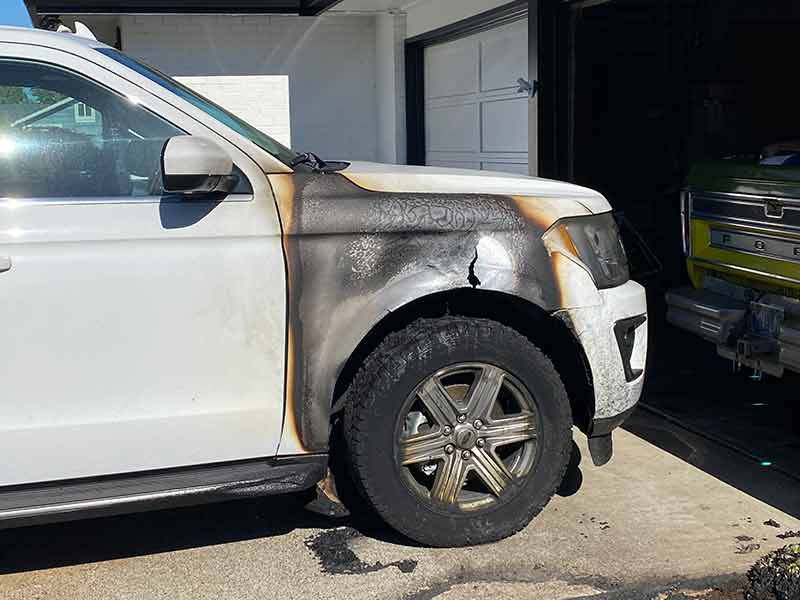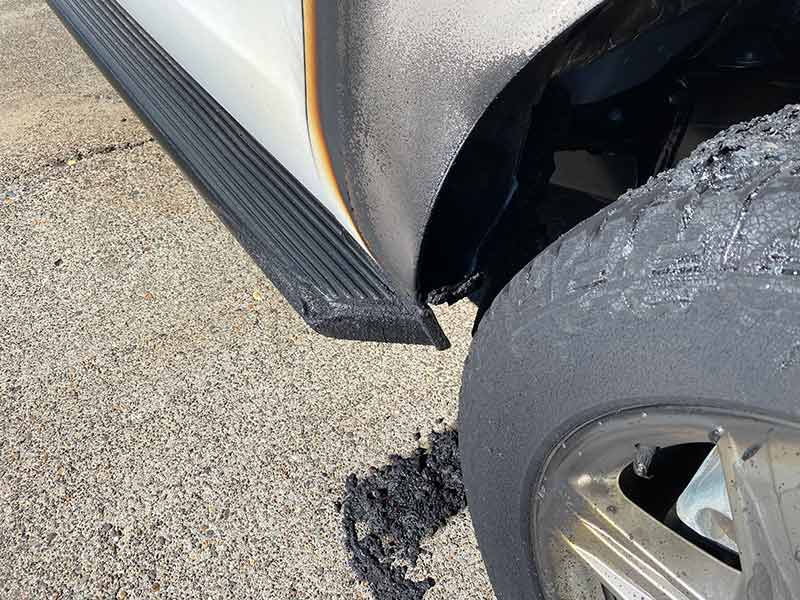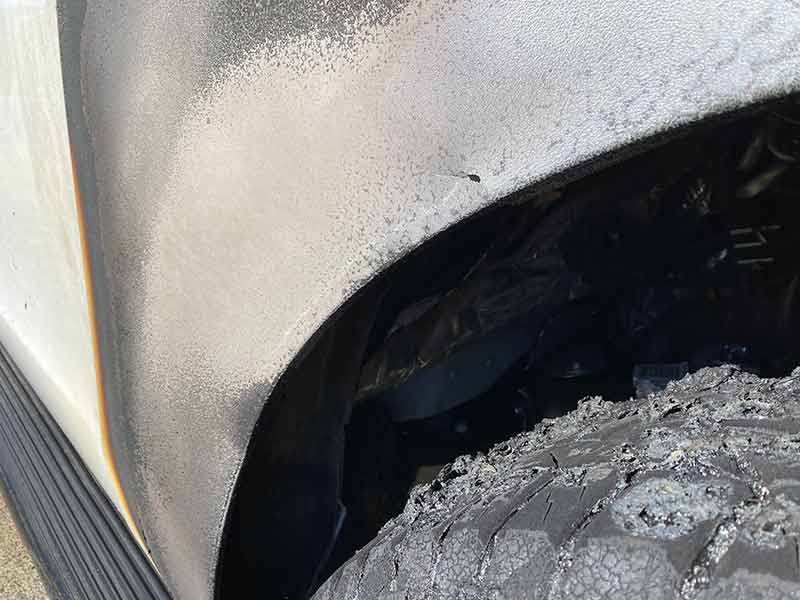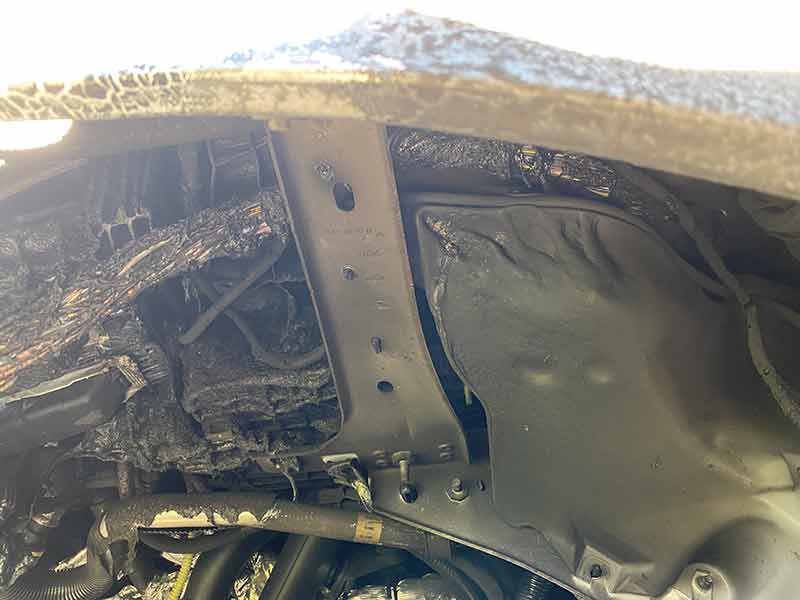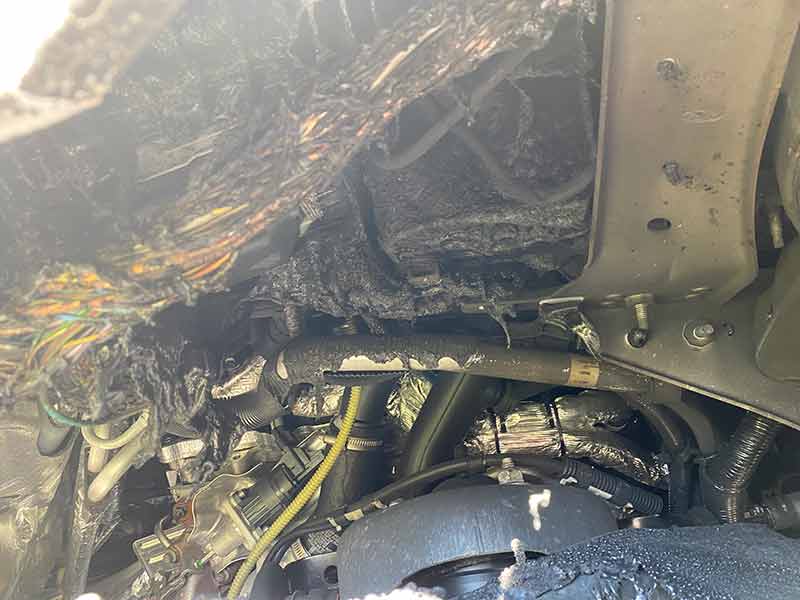Hagens Berman attorneys filed a class-action lawsuit against Ford alleging its Expedition and Lincoln Navigator vehicles spontaneously catch fire, corroborated by consumer reports. Approximately 39,000 vehicles nationwide were impacted by the alleged engine defect. Attorneys represented a class of owners and lessees of affected vehicles and reached a settlement in 2023 to provide reimbursement for fees related to the vehicle models’ recall and repairs, and more. Full terms of the settlement are explained below.
WHAT WAS THE LAWSUIT ABOUT?
Sixteen consumer reports were made of Ford Expedition and Lincoln Navigator vehicles spontaneously catching fire, including 12 cars that caught fire while parked and turned off. Ford issued a recall notice that indicated affected vehicles were built between Dec. 1, 2020, and Apr. 30, 2021. The defect was estimated to be present in 39,000 2021 Ford Expedition and Lincoln Navigator vehicles, and Hagens Berman’s attorneys investigated additional models and years.
WHAT FORD VEHICLES AND MODEL YEARS WERE AFFECTED?
- Ford Expedition, 2021
- Lincoln Navigator, 2021
- Additional Ford- and Lincoln-branded vehicles and model years are under investigation.
HOW DO I KNOW IF MY FORD OR LINCOLN HAD THE DEFECT?
Ford admitted the defect pertained to Ford Expedition and Lincoln Navigator vehicles built between Dec. 1, 2020, and Apr. 30, 2021. According to reports to the federal auto safety agency investigating the issue, customers reported a burning smell and smoke from the front passenger engine compartment while driving. In its recall notice, Ford stated that it would notify its dealers of the affected vehicles on May 19, 2022, and send letters to the owners of affected vehicles between May 23, 2022, and June 3, 2022.
WHAT FORD AND LINCOLN OWNERS SAID ABOUT THE DEFECT
Owners of affected Ford and Lincoln vehicles have reported complaints pertaining to this dangerous defect via NHTSA (the National Highway Transit Safety Administration) as well as other online news outlets:
- “Caught fire after using factory installed remote starter. A few days prior to the fire, the cruise control stopped working, after the cruise control stopped working, we received two warning lights on the dash display, service advance trac and hill decent control fault…”
- “It started out as all of the warning lights came on and they immediately pulled over, within a few seconds realized there was a fire in the engine bay and got everyone and everything they could out. Within approx 5min the entire thing was engulfed in flames on the shoulder.”
- “The fire not only destroyed the Expedition, but also caught our attached garage on fire…”
- “A Ford Expedition caught fire this morning at the intersection of MLK and Oak Street. The driver said he heard a boom while going down the road and then this happened moments later. Thankfully, no one was hurt but the vehicle was a total loss. …We had an Expedition catch fire in front of our house a couple of months ago. Luckily the lady and her baby got out safely.”
FORD FIRE DEFECT EXPLAINED
Ford stated that certain vehicles built during this time frame “may pose a risk of underhood fire,” including while the vehicle is parked and off. Ford’s original guidance to owners when the complaint was filed in 2022 was a general instruction to owners and drivers to park their potentially affected vehicle outside and away from structures and other vehicles due to the risk of unattended vehicle fire.
CASE TIMELINE
The case was resolved with Ford agreeing to provide a customer satisfaction program, which provides the following benefits to owners of affected vehicles:
- Customer Satisfaction Program
- Ford agrees to implement a customer satisfaction program (“CSP”) as follows:
- Covered Vehicles: All Recalled Expeditions and all Recalled Navigators.
- For owners of Covered Vehicles who experience a failure of the battery junction box or circuit board within 10 years of the warranty start date (the date of the initial sale to the original retail customer), Ford will provide a one-time replacement of the battery junction box and circuit board at no charge to the owner for parts or labor. Repairs must be performed by a Ford authorized dealer.
- Ford will provide notice by first class mail to all current owners in the ordinary course of business and in the same manner as it typically provides notice of other customer satisfaction programs.
- Ford agrees to implement a customer satisfaction program (“CSP”) as follows:
- Reimbursement of Excess Rental Fees
- Ford will make whole those Owners of Recalled Expeditions and Recalled Navigators who, according to Ford records, requested and received a loaner or rental vehicle at Ford’s expense but whose reimbursement was less than their actual and reasonable out-of-pocket costs.
- Owners claiming reimbursement must provide original documentation acceptable to Ford establishing the amounts charged and the amounts paid by the owners.
- Ford will send notice to owners potentially entitled to reimbursement advising them on how to claim reimbursement.
- Owners Denied Loaners or Rentals
- Ford will review its records to identify owners of Recalled Expeditions and Recalled Navigators who requested and were denied a loaner or rental by Ford.
- Ford will contact these owners to determine if they incurred rental car costs in connection with the recall and, if so, whether it is appropriate under the circumstances to reimburse them for such rental car costs.
- Discretionary Reimbursement and Payments By CRC
- To address unique and unusual circumstances associated with the Recalls, Ford’s Customer Relationship Center (“CRC”) will consider reimbursement of the following expenses:
- Alternative Transportation: Taxi, Public Transport, (subway, train, or bus), Rideshare (Uber, Lyft, etc)
- Reasonable parking expenses incurred to comply with instructions to park outside and away from structures or other property.
- Insurance deductible paid to repair vehicle damage if the damage would not have occurred but for instructions to park outside and away from structures or other property.
- Other out-of-pocket expenses reasonably incurred because of the instructions to park outside and away from structures or other property.
- To address unique and unusual circumstances associated with the Recalls, Ford’s Customer Relationship Center (“CRC”) will consider reimbursement of the following expenses:
- To address unique and unusual circumstances associated with the Recalls the CRC may also consider additional goodwill payments or other benefits.
- Owners who call the CRC have the right to consult with a supervisor on request.
